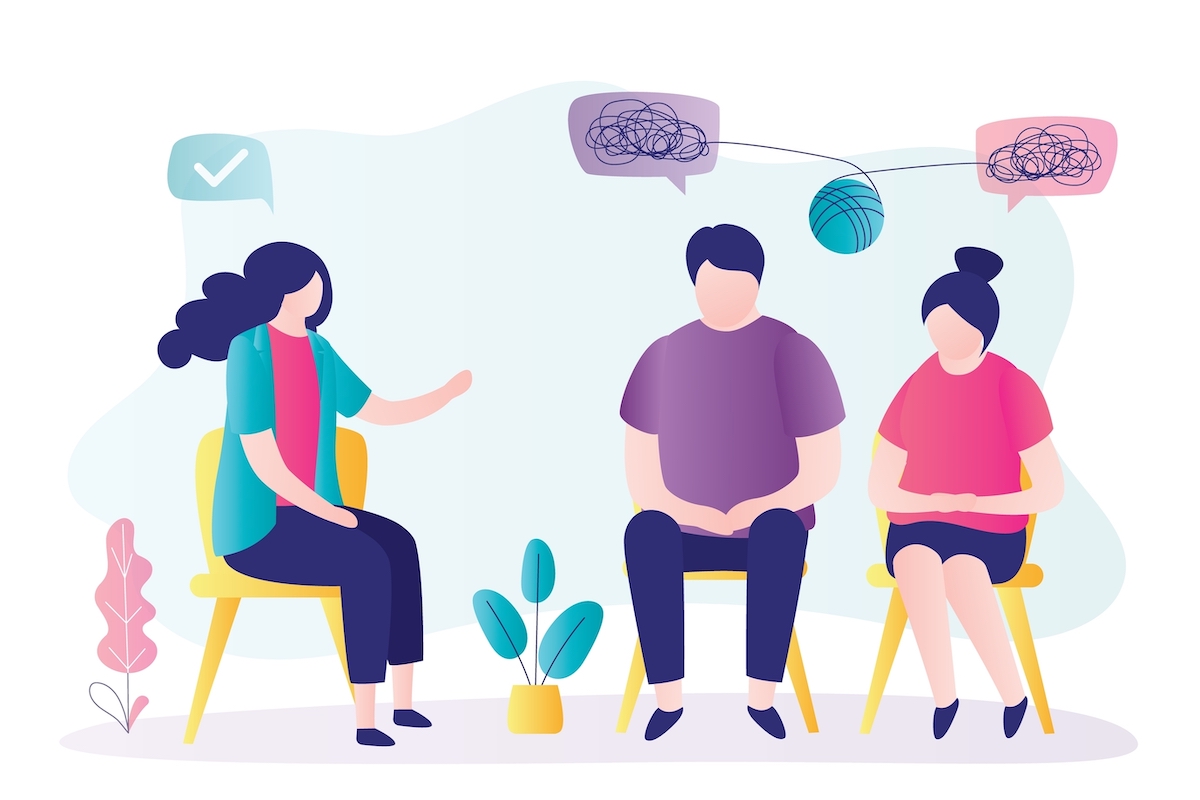Navigating Relationship Challenges: Understanding Causes and Finding Solutions
Building and maintaining a healthy relationship requires effort

Building and maintaining a healthy relationship requires effort, understanding, and effective communication. However, even the most loving partnerships can face challenges along the way. In this blog post, we will explore some common causes of relationship problems and provide practical solutions to help couples navigate through these difficulties. Whether you're in a long-term commitment or a new relationship, understanding these issues and implementing the suggested solutions can contribute to a more fulfilling and harmonious partnership.
I. Lack of Communication:

One of the leading causes of relationship problems is communication breakdown. When couples fail to express their needs, desires, and concerns openly, misunderstandings and resentment can accumulate over time. Establishing effective communication channels to foster understanding and maintain a strong bond is essential.
Solution:
Active Listening: Practice active listening by giving your partner your undivided attention, maintaining eye contact, and responding empathetically to their concerns.
Expressive Dialogue: Encourage open and honest conversations, where both partners feel comfortable sharing their thoughts and feelings without judgment or criticism.
Conflict Resolution: Develop healthy conflict resolution skills by addressing issues calmly, using "I" statements to express your emotions, and seeking compromises that satisfy both partners.
II. Lack of Trust:

Trust is the foundation of any successful relationship. When trust is compromised, doubts, insecurity, and jealousy can erode the connection between partners. Trust issues can arise from past experiences, secrets, or even external influences, and addressing them is crucial for rebuilding trust and strengthening the bond.
Solution:
Transparency and Honesty: Foster trust by being open and honest with your partner. Share your thoughts, feelings, and experiences, and encourage your partner to do the same.
Consistency: Consistently demonstrate reliability and follow through on commitments to show your partner that they can depend on you.
Rebuilding Trust: If trust has been broken, both partners should be willing to work on rebuilding it together. This may involve seeking professional help, such as couples therapy, to navigate through the healing process.
III. Lack of Intimacy:

Intimacy goes beyond physical affection; it encompasses emotional, intellectual, and spiritual connections between partners. Over time, couples may experience a decrease in intimacy due to various factors, including stress, busy schedules, or complacency. Neglecting intimacy can lead to feelings of disconnection and strain the relationship.
Solution:
Quality Time: Carve out dedicated time for each other, free from distractions, to engage in activities that foster emotional and intellectual intimacy, such as meaningful conversations, shared hobbies, or date nights.
Emotional Support: Be emotionally present and supportive of your partner, showing empathy and understanding. This can help create a safe space for vulnerability and strengthen the emotional bond.
Physical Intimacy: Prioritize physical affection, such as cuddling, holding hands, or engaging in intimate gestures, to maintain a healthy level of physical connection.
IV. Unresolved Conflict:

Conflict is a natural part of any relationship, but when left unresolved, it can breed resentment and create long-lasting problems. Ignoring or avoiding conflict can lead to a buildup of negative emotions and hinder the growth of the partnership.
Solution:
Constructive Communication: When conflicts arise, address them promptly and constructively. Use "I" statements to express your feelings and avoid blaming or criticizing your partner.
Active Problem-Solving: Focus on finding solutions rather than dwelling on the problem itself. Brainstorm together, consider compromises, and work towards a resolution that satisfies both partners.
Seek Mediation: In more complex or deeply rooted conflicts, consider seeking the help of a professional mediator or couples therapist who can provide guidance and facilitate productive discussions.
Conclusion:
Relationship problems are a common part of any partnership, but they don't have to be detrimental. By understanding the causes of these issues and implementing effective solutions, couples can strengthen their bond and create a healthier, more fulfilling relationship.
Remember, communication is key. Open and honest dialogue is crucial for addressing concerns, expressing needs, and resolving conflicts. Building trust requires transparency, consistency, and a commitment to rebuilding when necessary. Intimacy should be nurtured through quality time, emotional support, and physical affection. And when conflicts arise, approach them with constructive communication and a focus on finding solutions.
It's important to note that every relationship is unique, and not all solutions may work for everyone. If you find yourselves struggling to overcome relationship problems despite your best efforts, seeking professional help from a couples therapist can provide valuable guidance and support.
Ultimately, a successful relationship requires effort, patience, and a willingness to grow together. By acknowledging and addressing the causes of relationship problems, couples can cultivate a deeper understanding, trust, and love for each other, paving the way for a long-lasting and fulfilling partnership.
Remember, no relationship is perfect, but with dedication and a commitment to growth, you can overcome challenges and build a strong foundation for a lifelong journey together

